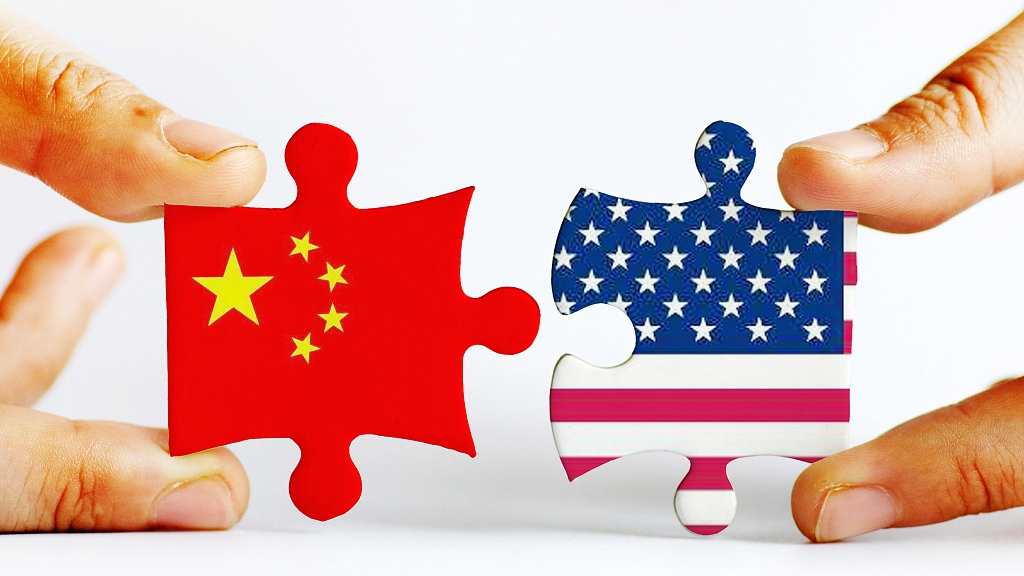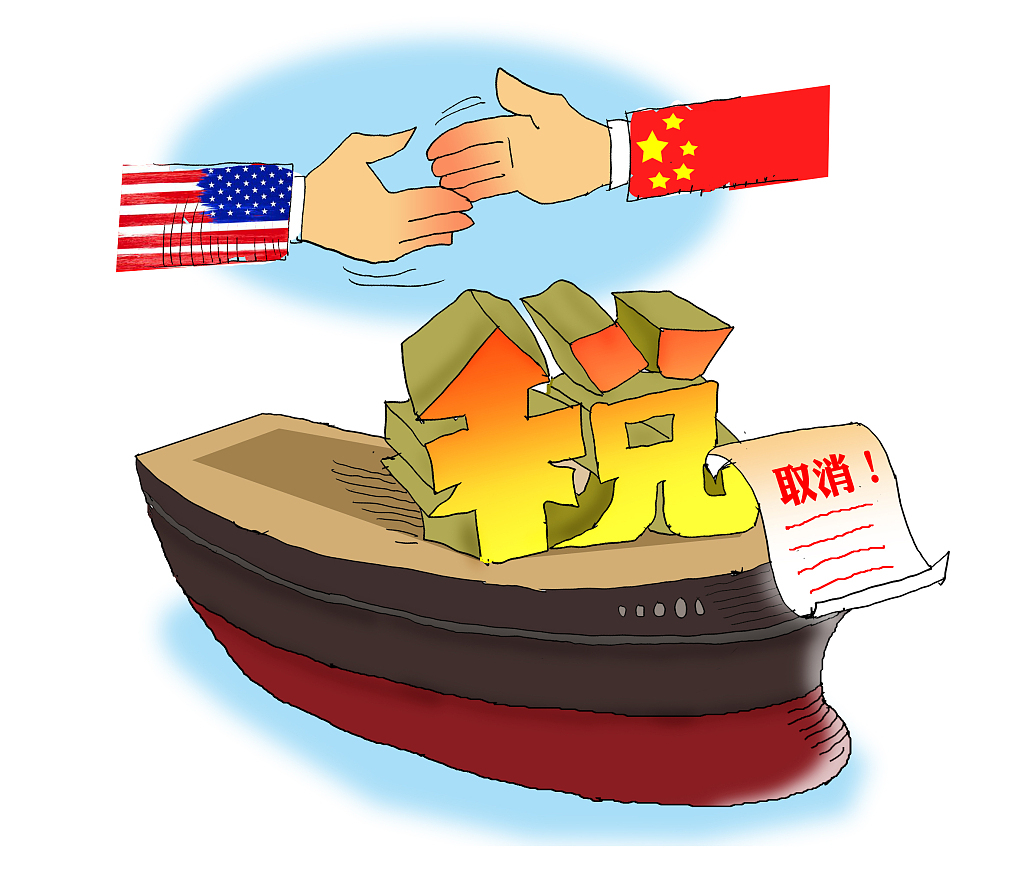

Editor's note: Ken Moak taught economic theory, public policy and globalization at the university level for 33 years. He co-authored a book titled "China's Economic Rise and Its Global Impact" in 2015. The article reflects the author's opinion, and not necessarily the views of CGTN.
U.S. President Donald Trump probably wants a deal to end the Sino-U.S. trade war of his own making because of the looming presidential election in 2020. In spite of his boasting that the U.S. economy is doing better than at any time in history, the media has declared that he has "set economic growth on fire," and businesses, consumers and farmers are struggling, in part, because of the tariffs.
The technology sector, too, is hit hard by Trump banning Huawei from entering the U.S. market and American firms from selling their products to the giant and other Chinese tech firms. U.S.-based consultancy firms such as Nomura Instinet estimate that Google would lose as much as 425 billion U.S. dollars each year by withdrawing its Android system from Huawei.
What's more, the trade conflict is spilling over to the geopolitical realm, making the world less safe. Perhaps attempting to isolate China or pressure China into a trade agreement meeting all U.S. demands, the Trump administration is establishing the Indo-Pacific strategy and playing the Taiwan card, both of which could spark a military clash between the two nuclear powers. Ending the trade war is thus in everyone’s interest, including those of Trump, the U.S., China and the world.
However, a number of politically-driven developments in the U.S. emerged recently, indicating that the trade war might not end anytime soon. For example, six senators from both political parties proposed legislation requiring the president to seek approval from Congress before lifting a ban on American firms to sell products to Huawei (and other Chinese tech firms). If the proposal is passed in the Congress and signed into law by Trump, the trade conflict between the world’s two largest economies could drag on indefinitely.
Because of the U.S. Congress' strong anti-China sentiment, even if the proposed law is not passed, Trump's hands could still be tied. Deleting Huawei from the Commerce Department’s “entity list,” which requires government approval for enterprises to do business with Huawei, might be a "non-starter." That is, any agreement allowing Huawei (and other companies) to do business with U.S. enterprises could be blocked by the legislative branch.
Trump is also playing politics, “poisoning” the China-U.S. relationship with his “America First” rhetoric, accusing China of “eating America's lunch” which, in large part, might be responsible for his winning the presidency in 2016. An agreement based on mutual interests and equality might be considered “giving in to China” and thus could drive away neoconservative supporters, explaining why he is making it more difficult to reach a deal by threatening tariffs on more Chinese goods.

VCG Photo
Adding to the uncertainty of reaching a deal is the disagreement between the two sides on a long list of items to be included in the negotiating agenda. The U.S. wants all agreements reached in past talks while China is demanding the inclusion of all U.S. promises. Since what is perceived to have been agreed on in past negotiations is unclear, the bickering could drag on.
Then there are “sensitive” items – China's “unfair” trade practices, state subsidies and development platform – that could and should not be compromised. The U.S. is really going after China’s highly successful development architecture because it created a formidable country which could challenge U.S. economic, military and technological supremacy.
The difficulties of finding common grounds on how the trade war could be ended might explain why two talks over the phone have not produced a schedule for in-person negotiations between the two sides.
The Sino-U.S. trade war could persist, thereby prolonging global economic and geopolitical instability. That is unfortunate, not only because the world might be falling into a recession but it is also making it a more dangerous place.
History tells trade and geopolitical conflicts were the sources of wars in the past. British trade deficits with China was the reason for the Opium Wars in the 1800s. Germany’s rising imperial ambitions were, in part, responsible for the First and the Second World Wars because it respectively wanted colonies in Africa and desired to unite Europe by force. Had it not been for nuclear weapons of mutually assured destruction, World War III between the U.S.-led NATO and Moscow-led Warsaw Pact and their respective allies might have happened.
A "hot war" between China and the U.S. is even more remote because both countries are nuclear powers and their economies are intertwined, thus America is wasting resources in making hollow threats against China. Since neither nation will fall into the Thucydides Trap, U.S. politicians should cooperate with their Chinese counterparts to work out an agreement that could end the trade war and make the world a more prosperous and safer place.
(If you want to contribute and have specific expertise, please contact us at opinions@cgtn.com)

Copyright © 2018 CGTN. Beijing ICP prepared NO.16065310-3
Copyright © 2018 CGTN. Beijing ICP prepared NO.16065310-3